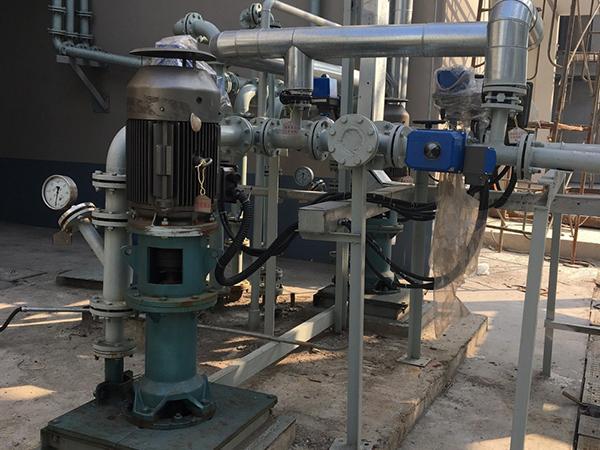English
- Afrikaans
- Albanian
- Amharic
- Arabic
- Armenian
- Azerbaijani
- Basque
- Belarusian
- Bengali
- Bosnian
- Bulgarian
- Catalan
- Cebuano
- Corsican
- Croatian
- Czech
- Danish
- Dutch
- English
- Esperanto
- Estonian
- Finnish
- French
- Frisian
- Galician
- Georgian
- German
- Greek
- Gujarati
- Haitian Creole
- hausa
- hawaiian
- Hebrew
- Hindi
- Miao
- Hungarian
- Icelandic
- igbo
- Indonesian
- irish
- Italian
- Japanese
- Javanese
- Kannada
- kazakh
- Khmer
- Rwandese
- Korean
- Kurdish
- Kyrgyz
- Lao
- Latin
- Latvian
- Lithuanian
- Luxembourgish
- Macedonian
- Malgashi
- Malay
- Malayalam
- Maltese
- Maori
- Marathi
- Mongolian
- Myanmar
- Nepali
- Norwegian
- Norwegian
- Occitan
- Pashto
- Persian
- Polish
- Portuguese
- Punjabi
- Romanian
- Russian
- Samoan
- Scottish Gaelic
- Serbian
- Sesotho
- Shona
- Sindhi
- Sinhala
- Slovak
- Slovenian
- Somali
- Spanish
- Sundanese
- Swahili
- Swedish
- Tagalog
- Tajik
- Tamil
- Tatar
- Telugu
- Thai
- Turkish
- Turkmen
- Ukrainian
- Urdu
- Uighur
- Uzbek
- Vietnamese
- Welsh
- Bantu
- Yiddish
- Yoruba
- Zulu
Telephone: +86 13120555503
Email: frank@cypump.com
Aug . 17, 2024 12:36 Back to list
Waste Tank Pumping Solutions for Efficient Waste Management and Disposal
Understanding Waste Tank Pumps Efficiency and Importance in Waste Management
Waste management is a crucial aspect of environmental protection and public health. One of the essential components of effective waste management systems is the waste tank pump. These pumps play a vital role in transporting waste materials from various sources to treatment facilities, ensuring that waste is handled properly and efficiently.
What is a Waste Tank Pump?
A waste tank pump is a specialized pump designed to move wastewater or sludge from storage tanks to treatment systems or disposal locations. These pumps can handle a wide variety of substances, including sewage, industrial waste, and other liquid waste materials. They come in various types, including submersible pumps, centrifugal pumps, and diaphragm pumps, each serving different needs based on the viscosity and nature of the waste being pumped.
Importance of Waste Tank Pumps
1. Efficiency in Operations Waste tank pumps significantly reduce the time and labor needed for waste transportation. By automating the pumping process, these pumps allow for continuous operation without significant downtime, which is crucial in commercial and industrial settings where waste accumulates quickly.
2. Preventing Environmental Contamination By effectively managing waste, waste tank pumps help prevent environmental contamination. Improper handling of waste can lead to leaks and spills that pollute soil and waterways, causing harm to ecosystems and human health. Properly functioning pumps ensure that waste is contained and treated appropriately, minimizing the risk of such incidents.
3. Regulatory Compliance Many regions have strict regulations regarding waste management, which include guidelines for the transportation and disposal of waste materials. Waste tank pumps help facilities comply with these regulations by securely and efficiently moving waste to designated treatment sites, thereby avoiding potential fines and legal issues associated with improper waste disposal.
4. Versatility and Adaptability Waste tank pumps are designed to handle various types of waste, making them adaptable to different industries. Whether it’s municipal sewage, agricultural runoff, or industrial byproducts, these pumps can be adjusted to manage specific waste characteristics, including solids content and chemical composition.
waste tank pump

Key Considerations When Choosing a Waste Tank Pump
Selecting the right waste tank pump is critical for efficient waste management. Here are several factors to consider
- Type of Waste Different types of waste require different pumping systems. For example, viscous or solid-laden waste will need a more robust pump compared to standard sewage.
- Flow Rate and Pressure Understanding the required flow rate and pressure is essential to ensure that the pump can operate effectively within the specific waste management system.
- Material Compatibility The materials used in the construction of the pump should be compatible with the waste being handled to prevent corrosion or damage, which could lead to leaks.
- Maintenance Needs Regular maintenance is crucial for the longevity and reliability of waste tank pumps. Choosing a pump that is easy to service will reduce long-term operational costs.
Conclusion
Waste tank pumps are a fundamental component of modern waste management systems. Their role in efficiently transporting waste, preventing environmental harm, and ensuring regulatory compliance cannot be overstated. As industries continue to evolve and face new challenges in waste management, the importance of these pumps will only grow. Investing in high-quality, reliable waste tank pumps is essential for any organization that aims to promote sustainability and protect the environment, ensuring that waste materials are handled responsibly and effectively.
-
ISG Series Vertical Pipeline Pump - Chi Yuan Pumps Co., LTD.|High Efficiency, Energy Conservation, Low Noise
NewsJul.29,2025
-
ISG Series Vertical Pipeline Pump-Chi Yuan Pumps Co., LTD.|High Efficiency&Energy-Saving
NewsJul.29,2025
-
ISG Series Vertical Pipeline Pump - Chi Yuan Pumps Co., LTD. | High Efficiency, Energy-Saving
NewsJul.29,2025
-
ISG Series Pipeline Pump - Chi Yuan Pumps | High Efficiency, Low Noise
NewsJul.29,2025
-
High-Efficiency Vertical Slurry Pumps for Mining & Industry Solutions
NewsJul.29,2025
-
High-Efficiency Pipeline Pump Solutions for Every Pipeline Pump Station
NewsJul.29,2025










